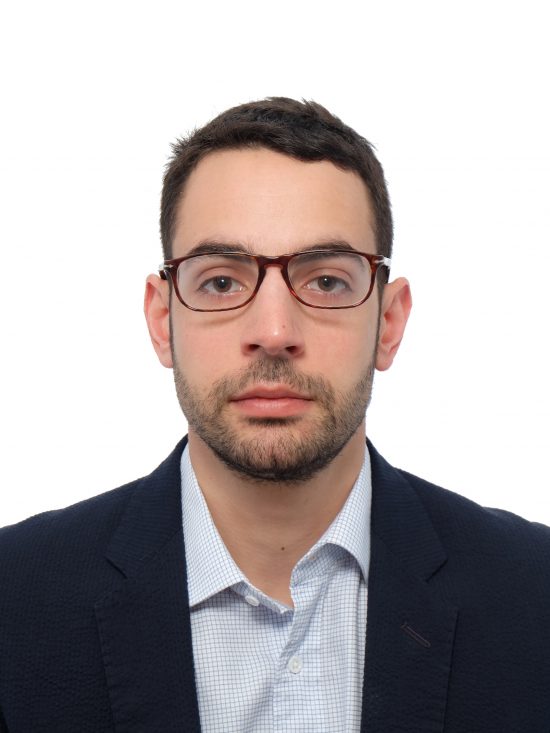Casa Verde Capital, the firm co-founded by Snoop Dogg and known for its portfolio of major brands including Merry Jane and Trellis, focuses on ancillary cannabis investments with long-term potential.
Casa Verde Capital recently closed a $4.3 million seed funding round for vaporizer hardware company Green Tank Technologies, shortly after announcing a $45 million debut round.
The venture capital firm focuses on ancillary businesses that don’t touch the cannabis plant. The most recent portfolio addition is Vangst, a cannabis industry employment resource. Other portfolio companies include Green Bits, Cannalysis, LeafLink, and Eaze.
Yoni Meyer, partner at Casa Verde Capital, is a seasoned banker and angel investor. Meyer was an investment banker at Citigroup for over seven years before joining Casa Verde Capital in June 2017.

Yoni Meyer, partner, Casa Verde Capital. Photo provided.
Meyer shared Casa Verde Capital’s investment strategy with Cashinbis.
What qualities convince you that a company will serve the cannabis industry long-term?
1. Having quality entrepreneurs and founders behind a team.
I think when you’re dealing with these early-stage investments, it’s critical that you’ve got people with a strong head on their shoulders, that have strong entrepreneurial experience from other disciplines, that they’re bringing into the cannabis space. I’m not saying there aren’t other situations, but that has helped set the stage for some really strong founding teams – which is the anchor of any successful company – versus looking for people that have a ton of cannabis experience and are trying to create technology businesses off of that.
Having quality founders with experience in other areas that can bring in that discipline is really critical.
2. Filling gaps in the existing cannabis infrastructure.
We recently invested in Vangst, which is a recruiting company for the cannabis industry. Traditionally, recruiting in and of itself wouldn’t be a venture-backed business, but because we’re in cannabis, and because recruiting is the core of any industry – this is a brand new industry that formed very quickly – it’s critical to have recruiting that focuses just on cannabis. That’s exactly why we invested in Vangst – they’re filling a key, core service that’s necessary to this market.
Why is B2B marketplace LeafLink Casa Verde’s biggest investment to date?
It’s the biggest investment to date because they’re the only company that’s had three rounds of funding. Our next company, Green Bits, will probably do another round of funding soon. The way we think about these investments is to write the initial check, and then based on how the company performs or not, then we’ll be reinvesting into subsequent rounds of funding.
Looking forward, what kinds of ancillary businesses is Casa Verde looking to add to its portfolio?
Data and analytics – that’s a critical component for understanding the industry. We’re looking at distribution platforms, and also banking and payment solutions.
As an experienced banker, how do you think the cannabis industry’s banking issues are going to play out?
Unfortunately, I don’t think there’s any quick fix there. I think it will be a question at the federal level as some of this legislation plays out. But I think that the more technology that we have to provide to banks – to give them the comfort and transparency as to what is coming in and out of dispensaries and cannabis businesses – will frankly, push the conversation exponentially farther. What else do you need if you have visibility to every dollar coming in and out of my bank account, to get comfortable that this is a legitimate business that I’m paying taxes on? So, on one level, it will require rescheduling and legislation. On another level, there are businesses already banking.
Not every single cannabis company is putting money into a hole in the ground. Some are doing this in an above-board, transparent manner. There are banks that are banking cannabis companies, and they can be provided with tools to make their jobs easier, which creates a virtual circle to get more people comfortable with banking these kinds of businesses.
For example, Green Bits – that’s our point of sale company. Beyond the compliance that they provide for companies to push information to the state track-and-trace provider, they’re also providing visibility for banks as to what these businesses are doing.
How involved are Casa Verde partners when it comes to the development of your portfolio companies?
We are super involved with them. We are part and parcel of these companies. We’re very active investors, and for every deal we’re taking , we’re on the front lines of this industry and we’re at the nexus of everything that’s happening. Everyone’s coming into our offices. Beyond the initial investments, we considerably add value to out companies and provide them with strategic evaluation for markets they should be entering, whether that’s connections to the largest brands and cultivators in California.
Because we take the ancillary approach, we have the ability to be quite efficient with customers in that the services of our portfolio companies overlap. If you’re a manufacturer or cultivator, you’re probably going to be using Trellis for seed-to-sale tracking, you’re going to be using Cannalysis for lab testing, and dispensaries will be using Green Bits for your POS.
Some of your portfolio companies are based in Canada. What do you anticipate when Canada legalizes this summer?
In terms of cannabis legalization this summer, it will start with flower. Green Tank will not have an influx of customers. But in terms of vape cartridges, it will be a matter of a few months later and Green Tank will hopefully be the solution everyone is using in Canada.
A bigger question is, What are the provincial governments in Canada going to be doing around compliance? Because that’s a key part in how we look at investments on our end: How are our portfolio companies helping their customers to be compliant? Because that’s the deal – if you’re not compliant, you’re dead in this industry.
As it relates to Canada, what’s the actual compliance framework that they put in place? I think, frankly, they’re approaching a lot of the remaining questions that have yet to be answered.
We’re very close to the senior teams at publicly traded companies in Canada. I think they’re starting to come around that the ancillary side is just as important as the cultivation side that they’ve been primarily focusing on until recently.
From a global standpoint, other countries are focusing on cultivation?
Absolutely. Off the bat, Colombia is really focusing extensively on cultivation. The climate in Colombia is that you’re growing year-round with fantastic weather. When it comes down to cannabis, it’s going to be treated like any other commodity, and it will come down to who can produce the best cannabis at marginal cost. Everything is going to be – how are you cutting margins?
When it comes to Colombia, the labor margin is going to be slashed considerably, and then off the bat, they’re going to be exponentially more efficient with their power because they’ve got year-round sunlight, and they’re not dealing with the complexity you’re dealing with in the U.S. and Canadian markets where everything’s indoor and it’s so much more expensive to produce. So we have Canadian companies signing deals in Colombia so they can set up their new production down there to be exporting from Colombia. I think frankly we’re getting too far ahead of ourselves in that I don’t see international demand yet for true export gain – It’s going there, just not yet.
At the same time, an overarching point for why we’re taking our approach with ancillary businesses – if it’s a race to who can produce cannabis at the lowest cost, that’s not a business I want to be involved with conceptually, because you’re just squeezing pennies, pennies, pennies across the board. So it’s hard to see the true upside. Whereas technology companies don’t have to invest in crazy, difficult infrastructure as well as licenses, etc. It’s much more scalable.
What’s your favorite question to ask an entrepreneur?
“What keeps you up at night?”
You need to be paranoid in this industry, that you’re always maintaining that edge – that there’s a new product you’re working on, that you know what your competitors are doing.
You need to be thinking about your business from every angle, because bad case scenarios can pop up in venture cannabis and in everywhere else. If you’re super confident that you’re going to execute across the board and succeed and nothing can go wrong, that doesn’t give me confidence. It’s a red flag if you think no issues will arise.










